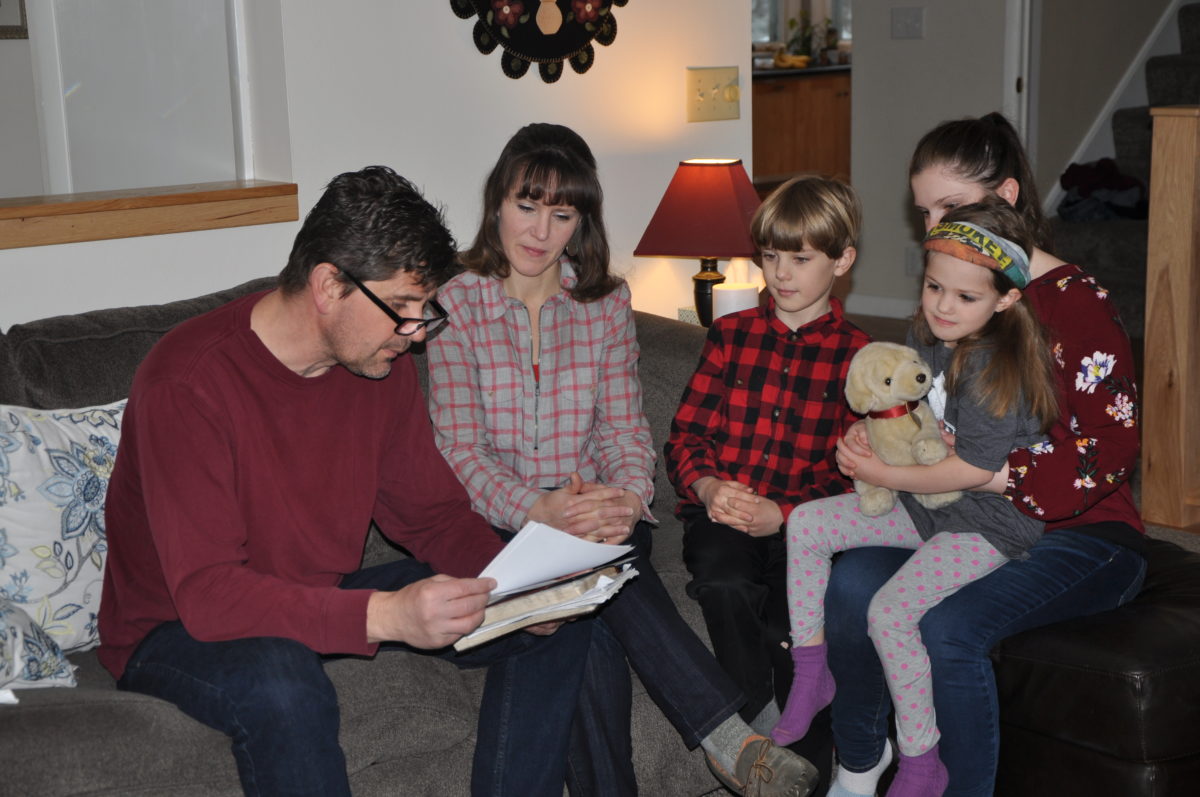Coronavirus … COVID 19 … That’s pretty much all we’re hearing right now. That and all the messaging (true, false, and changing) that we’re receiving.
In such times we need to know God’s will. And then we need strength for the doing of God’s will … strength for the Doing of It.
In Luke 22.39-46, Jesus has just led His disciples out to the Mount of Olives where He is residing during Passover (:39). They’ve celebrated Passover. Even as He prepares to BE the Passover lamb of God, Jesus has fulfilled that observance and transformed the meal into the observance of His own death, now only hours away. Judas has failed the test of discipleship; he’s abandoned Jesus. What about the others? How will the other disciples find strength for the doing of God’s will?
Now, in the garden, Jesus instructs His followers to pray (:40). He’s told Peter (representing all the others too) that he’d be “sifted like wheat” (:32). Pray that you may not enter into temptation, Jesus commands. Dependance on God will protect them in the test ahead.
Jesus prays and receives God’s strengthening (:41-44). With dramatic tension, Jesus withdraws “about a stone’s throw” from the disciples. He kneels in prayer. Father, if you are willing, remove this cup from me. Nevertheless, not my will, but yours be done. Remember Luke 4? Satan didn’t want Jesus to go to the cross (and accomplish redemption). Jesus, in His full humanity) doesn’t want to go to the cross. Why the cross? Because only through the cross will redemption be accomplished. Only through the obedience of Jesus will the holiness of God be demonstrated. And only through the cross will the love of God in saving those dependent on Jesus be shown.
An angel appears to strengthen Jesus for the doing of God’s will. Note what Jesus does after the encounter. He returns to prayer. And being in agony he prayed more earnestly; and his sweat became like great drops of blood falling down to the ground. Interesting to me is that the Father strengthened Jesus not just for the ordeal ahead but that Jesus might be strong to keep on depending on God in prayer.
Jesus warns His followers again to pray for strength (:45-46). Now Jesus returns from prayer and finds His disciples … sleeping. Their response is understandable, human. I’d probably do the same thing. But, they’ve not grasped the moment. They don’t understand what God is doing. They don’t understand the weakness of the flesh.
This is where we find an important lesson. We don’t fully grasp the spiritual tests we find ourselves in, do we? These tests of faith certainly involve whether or not we’ll follow or abandon Jesus in the moment. Many tests, however, involve our willingness to carry the burdens and look after the wellbeing of others. In Colossians 1.24, Paul says, Now I rejoice in my sufferings for your sake, and in my flesh I am filling up what is lacking in Christ’s afflictions for the sake of his body, that is, the church.
Jesus’ disciples are failing in that kind of test. In the days ahead, they’ll need His strength to lead and serve others. Rise and pray that you may not enter into temptation, He tells them.
That last verse of the teaching unit includes an important spiritual lesson. Did you get it? God strengthens those who depend on Him for the doing of His will. That strength is available in Jesus, in prayer, right now! We don’t have to fall to temptation. We don’t have to be clueless about what God is doing. We really can follow Jesus in the midst of tests, trials and fearful times.
Depend on God in prayer for the strength to do His will.
For Jesus, doing God’s will looked like going to the cross. For us, doing God’s will looks like faith in the One who went to the cross, expressed in all our different circumstances and in prayer …
So, as we prepare for what I’m calling our “Coronacation” this week, we might be …
- Tempted to despair because of opportunities lost (solo ensemble, forensics, boy’s basketball) … Talk to God. Tell Him honestly your disappointment, but ask Him to show you His will for the next couple of weeks.
- Tempted to fear the virus? … Find ways to pray with people, over the phone, online or in smaller groups.
- Tempted to fear the collateral damage from our planet-wide response … remember Jesus’ words from Luke 21.28: … Now when these things take place [pandemics, and such] straighten up and raise your heads, because your redemption is drawing near.
Depend on God in prayer for strength to do His will …!
Here’s some questions to keep us going:
- What else? What are your tests this week that would keep you from pursuing God’s will above all else? Can you list them? Are you willing to pray about them?
- Who else can you be praying with this week? What might it look like to meet with others for encouragement (Hebrews 10.24-25) and in the midst of a society shut down?
- Why do you think gathering with God’s people is just so terribly important in the next few weeks, even if we don’t get to meet in our normal, big group?
- What about Jesus are you thankful for?
Now, depend on God in prayer for strength to do His will this week! God bless you …!


